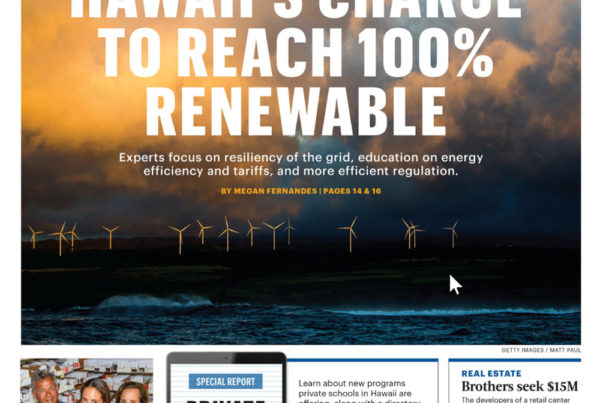Hawaii Business Magazine
May 2019
by GINA GELBER
 If you thought insurance was dull, you haven’t talked with Chason Ishii about all the industry’s developments, including the need for more focused data to enhance the pricing accuracy of premiums.
If you thought insurance was dull, you haven’t talked with Chason Ishii about all the industry’s developments, including the need for more focused data to enhance the pricing accuracy of premiums.
He also discusses how insurance can help companies grapple with cybersecurity and crime, violence and harassment in the workplace, and other issues.
Q: Are insurance companies more profitable in Hawaii or on the Mainland?
Ishii: Mainland agencies are actually around 20 percent more profitable. One reason is Hawaii tends to have a larger percentage of independent agents, who receive a higher commission. Most Mainland agencies have salaried employees.
Q: How does the cost of insurance in Hawaii compare to the Mainland?
Ishii: That’s difficult to answer because it depends what’s happening in a particular area. The legal environment makes a difference. New York City tends to be litigious, so liability insurance tends to be more expensive. Another factor is the physical environment. The Gulf states may be more prone to hurricanes or flooding so they tend to have higher property insurance premiums.
Hawaii falls around the median in insurance overall. For auto, we tend to be a bit below, but homeowners insurance is a little higher. There are hurricane concerns. We tend to have more flood zones than a typical state. So those type of areas will add to the cost of the insurance in Hawaii.
Consumers in Hawaii benefit from having a very conservative insurance commissioner. That entity sets the rates. A carrier cannot just come into our state and say: “I’m going to raise my rates 20 percent.” They’d have to go to the commissioner and provide data that explains why they are asking for the increase.
Q: Can we expect workforce changes in the local insurance industry?
Ishii: The trend toward specialization is already occurring. There are so many specific risks and perils in different industries that it’s difficult for a generalist to be up to date on what’s happening not only in personal lines, but also in the restaurant industry, versus the hotel-hospitality industry, versus construction. These have very different risks with different issues and challenges. Companies of our size are fortunate because we can educate our team about specialized industries. For instance, we sent someone to the Mainland to an insurance conference specializing in medical marijuana coverages for dispensaries.
Q: What’s the impact of severe weather events on insurers?
Ishii: Carriers need to improve data and forecasting models to improve the overall accuracy of pricing. Take the California wildfires in 2017: Only 3 percent of the claims filed for the destroyed homes or businesses had been identified as high risk for fires. Consumers were covered because they had fire insurance, but insurers got hit hard because they didn’t price premiums appropriately.
They priced premiums according to whether the properties were located in a safe zone or in an area prone to fires. They’re realizing they need better data, not based on Zip codes; it’s got to be more narrow.
Q: How does that look in Hawaii?
Ishii: Let’s take 96822, Manoa. The mountain areas might be more prone to landslides and then you got the stream and those homes might be more prone to flooding. Narrower data points will allow for more accurate pricing.
Q: Cybersecurity is on everybody’s mind. What is your advice from an insurance perspective?
Ishii: Cyber products are more prevalent and popular. It’s not a matter of if you are getting breached but when.
So if you have cyber coverage insurance, your case manager will help walk your company through that whole process. Here in Hawaii that’s important because we don’t really have forensic specialists who can do a really good job finding out: Where did the breach come from? How did they breach your company? etc.
Secondly, we don’t really have the legal attorneys who understand what to do next. Sometimes companies (that don’t have cyber coverage) end up utilizing New York or Chicago attorneys, which can be tricky because each state has its own requirements on notifying individuals who were breached. The fines for not notifying individuals in a timely basis can be extraordinary.
People talk about cyber, but don’t realize they also need insurance for crime because they work hand in hand. Crime is different – that’s when someone breaks into your system and is now utilizing that as leverage to extract money from you.
Groups, largely from China or Russia, will hack into your system and say: “We got all your data including all your HR files and we are going to make that public or we’re gonna sell it unless you give us, let’s say $25,000.” That’s very common in today’s world and it happens in Hawaii. This is where crime coverage can come into play.
Everybody thinks they’re only going after the big companies, but the reality is smaller companies don’t have the infrastructure to detect it, so they are easier targets.
Q: Are there new types of insurance products?
Ishii: There are some novel, not necessarily new, products around terrorism or active shooters. Most companies don’t want to bring up those topics with their teams, but it’s reality and it’s becoming essential, along with training.
Employers need to train their team on how to react to an active shooter situation and if they’re not trained, the company or employer could be liable. There are some pending lawsuits around this topic.
Let’s say you have a club or a restaurant and there was an active shooter situation and the employees froze – they had no protocols in place so they didn’t know how to react. Employers are being held liable for that scenario. This is extra sensitive because it can include employee workplace violence.
Another area gaining momentum is employee practice liability insurance, not new but highlighted because of the Me Too movement. You’re seeing more and more harassment cases – not just sexual harassment, but harassment cases in general.







